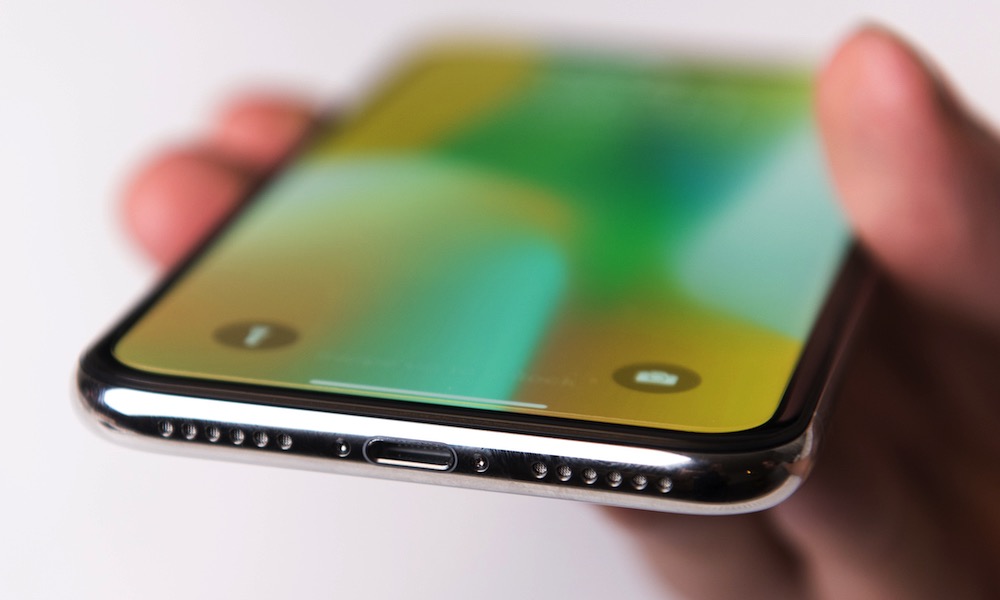Europe Is Ready to Force Apple to Ditch the iPhone’s Lightning Port
 Credit: Anna Hoychuk / Shutterstock
Credit: Anna Hoychuk / Shutterstock
Toggle Dark Mode
The European Commission is on the brink of adopting its long-awaited legislation that will require all mobile phones and other electronic devices sold in Europe to have a common charging standard.
According to Reuters, the Commission will be ready to present the legislation as soon as next month, which has been hotly debated within its ranks for the past few years. Sources say that the EU executive is now in the process of drafting the new rules, and although the details aren’t clear, they’re widely expected to give the nod to USB-C as the new common standard.
Currently, mobile phones sold throughout the 27 countries in the European Union use a hodgepodge of different charging connectors, with Reuters noting that half of the chargers sold in 2018 had a micro USB connector, while 29 percent used USB-C, and 21 percent used Apple’s Lightning connector.
The problem with this, as far as EU regulators are concerned, is that it increases the amount of electronic waste as consumers are forced to buy new chargers and discard old ones when upgrading to newer smartphones.
According to a resolution passed in late 2019, around 50 million metric tons of e-waste is generated globally per year, with about a quarter of that coming from Europe. The European Parliament describes this as “an unnecessary environmental footprint that can be reduced,” and points to charging accessories as a linchpin of the problem.
The resolution, which passed in a 582-40 vote in the EU’s parliament, originally ordered the Commission to adopt new rules by last July, but this deadline was extended as the world wrestled with the global COVID-19 pandemic.
Now, however, it looks like they’re finally ready to proceed.
Will Apple Actually Ditch Lightning?
Firstly, if you’re hoping that this will prompt a wholesale switch to USB-C on Apple’s next-generation iPhone models, we’d suggest not holding your breath.
Like most of these kinds of regulatory laws, these get implemented at the speed of government, which means that it could be years before Apple is actually forced to make a change — by which time Apple will likely have released its much-rumoured portless iPhone, and wired charging ports will be a thing of the past.
To be fair, the European Parliament also recommended that the Commission regulate wireless chargers to ensure that they’re completely interoperable, but this is far less of an issue, as it’s already covered by the Qi standard, and even Apple’s MagSafe charging technology remains fully Qi compliant — just at lower charging speeds. It’s unlikely that the EU will go so far as to mandate minimum power levels for Qi charger compatibility.
To give you an idea of how slow the EU moves in this area, however, it’s worth considering that the European Union has been pushing for a common charging standard for well over a decade already, although back then it expected companies to voluntarily comply with its standards, which were published back in 2010 and mandated micro USB as the common charging standard.
Apple actually signed on to this “voluntary memorandum of understanding” back in 2009, but it also arguably cheated a bit. Instead of putting micro USB directly into the iPhone, it forged ahead with its proprietary Lightning connector and offered a $19 Lightning to Micro USB Adapter to satisfy the European Union’s requirements.
It remains to be seen whether Apple would get with pulling a similar trick this time around, but several Members of the European Parliament (MEPs) saw through Apple’s game last time, and have begun calling for ”binding measures” that would force all devices sold in the EU to directly support the same chargers.
For its part, Apple has naturally been vocal in opposing the legislation, suggesting that it would “freeze innovation” and be “unnecessarily disruptive” for consumers.
Apple does have a point, to be fair, since it’s sold over a billion Apple devices with Lightning connectors over the past nine years, and there’s still a sizeable market of third-party accessory makers that build their devices for the Lightning port.
It’s not hard to see how this would create more e-waste, at least in the short term, as customers would suddenly be left with multiple accessories that would be rendered useless after upgrading to a newer iPhone.
With the legislation still being drafted, it’s still unclear what approach European regulators are ultimately going to take, since a common charging standard could mean many things, from enforcing a USB-C port on every smartphone to simply making sure that the physical chargers themselves use a detachable USB-C cable, with no concern for whatever is on the other end.
The legislation will also have to be voted into effect by the European Parliament before it becomes effective, which might spark a whole new round of debate between those who think it goes too far and those who fear it doesn’t go far enough. Even if it passes, however, which seems likely, companies will almost certainly be given a window of time to comply with the new rules, and based on the way the EU traditionally rolled, that’s likely to be at least a few years, and a lot can change in a few years, especially in the world of technology.






